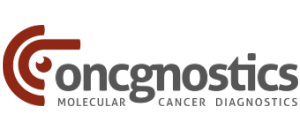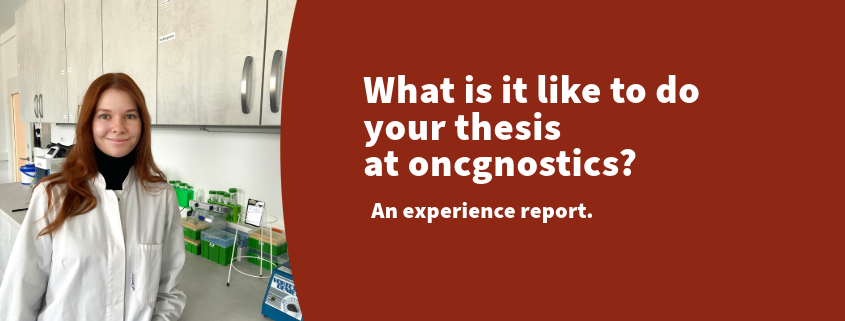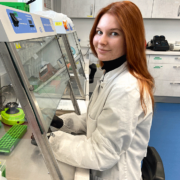Bachelor thesis in biotechnology companies: From research to diagnostics
What can emerge from basic research? This question followed Lena Bernstein during her studies in Biochemistry and Molecular Biology at the University of Jena. To find answers, she chose to write her bachelor’s thesis at a biotechnology company. She shares her experience at oncgnostics GmbH in this report:
I now see the purpose of my studies and the tangible impact that research can have on everyday life. This is the insight I’ve gained from five months at oncgnostics. It was important to look beyond the confines of the university for my thesis. And I succeeded in doing that here.
University is research, but what happens to the results?
Sure, a lot of basic research is conducted at universities. That’s important. But I also wondered, what happens with the results of this research? What benefit do these findings have for society?
Since I’m interested in tumor development and diagnostics, I proactively applied for an internship at oncgnostics GmbH. I was thrilled when I received an offer to write my bachelor’s thesis there as well. My task was to contribute to the further development of a cervical cancer test which was based on epigenetic markers – one of their products.
Currently, women still need to visit their gynecologist to have a sample taken for the oncgnostics cervical cancer test. For many women, this can be a hurdle. Some, whether because of personal or religious reasons, find visiting the gynecologist an uncomfortable experience. And in countries with poor infrastructure, seeing a gynecologist is often impossible.
Couldn’t women also collect the sample themselves? Would a self-sampling test be possible? My bachelor thesis at oncgnostics helped clarify these questions and gave me first-hand experience with what can emerge from research.
Bachelor’s thesis: Self-sampling works
In my bachelor’s thesis, I followed a multi-step approach. I initially compared different methods for preparing patient samples and assessed them using two DNA methylation tests to determine the best self-sampling method. Additio
nally, since there are various products available for women to perform a vaginal swab on themselves, I aimed to identify which product was superior. This was done by providing four different self-sampling kits to each of the participants and surveying their experience with the products. We wanted to not only determine which swab collection kit women found easiest to use, but also whether women are even willing to use a self-sampling test for cancer diagnostic purposes.
It was gratifying to have two clear results at the end of my thesis: Yes, self-sampling works for the oncgnostics cervical cancer test. And yes, women are willing to use self-sampling methods.
I’m doing something meaningful at oncgnostics
Writing my bachelor’s thesis at a biotechnology company like oncgnostics had several advantages. I was able to work directly with patient samples – real human samples. This was an opportunity I rarely received at university. Moreover, the research questions of a company are different than in a university. In a company, everything is geared towards a specific purpose. So I felt that what I did mattered and had practical applications, especially because I was contributing to the further development and optimization of a real product. Now I can live with the knowledge that, if oncgnostics brings a self-sampling cervical cancer test to market, I will have played a small part in making it happen.

 oncgnostics GmbH
oncgnostics GmbH

